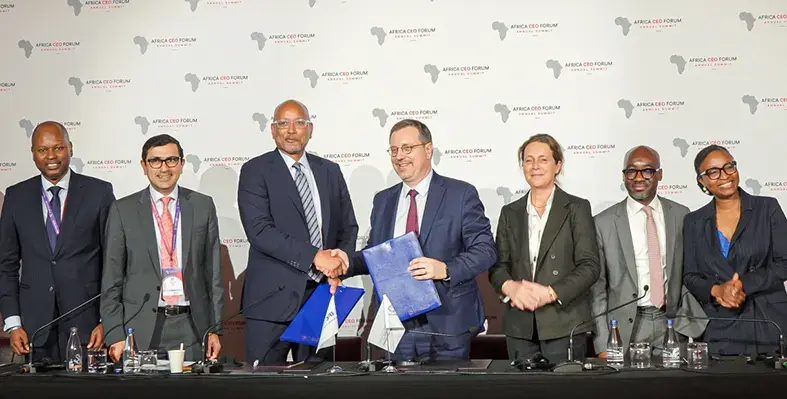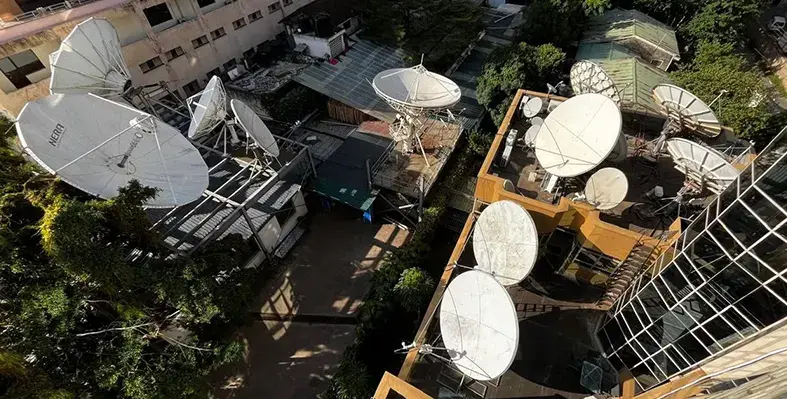IHS Nigeria – a subsidiary of IHS Holding Limited, one of the world’s largest independent owners, operators, and developers of shared communications infrastructure by tower count – has announced a strategic partnership with the Nigeria Security and Civil Defence Corps (NSCDC) to enhance the protection of critical telecommunications infrastructure across Nigeria
IHS Nigeria, which manages more than 16,000 towers and has deployed over 15,000 km of fibre in the country, recently signed a memorandum of understanding (MoU) with the NSCDC – the national agency responsible for safeguarding vital information infrastructure. This agreement aims to combat persistent issues like vandalism and theft at tower sites and along fibre routes, while reinforcing both organisations’ shared commitment to protecting Nigeria’s communications backbone.
Under the MoU, IHS Nigeria and the NSCDC will collaborate to develop and execute strategies that bolster the safety of IHS Nigeria’s network and other critical telecom infrastructure protected under Nigerian law. The NSCDC will provide support in surveillance, emergency response, and incident reporting, and assist with tower decommissioning and the identification, arrest, and prosecution of those found damaging telecom assets.
“At IHS we are key enablers of connectivity, and this partnership with the NSCDC is for us an important step towards enhancing the resilience, reliability and availability of telecommunications connectivity in Nigeria, commented Mohamad Darwish, CEO, IHS Nigeria. “By working closely with the NSCDC, which enforces the law that designates telecommunication towers as critical national information infrastructure, we aim to create a safer and more secure environment for our operations, including our infrastructure, and more importantly, ensure better quality of service for all users in Nigeria.”
Ahmad Abubakar, commandant general, NSCDC, stated, “The Corp has a mandate to safeguard critical national infrastructure, and IHS Nigeria’s extensive telecommunications assets and network falls squarely within this mandate. We consider IHS to be a strategic partner whose infrastructure is essential to the operations of many organizations across the country. We aim to provide a heightened level of operational excellence and support, focused on securing telecommunications infrastructure more effectively than ever before. Our doors remain open for collaboration, and we look forward to working even more closely with IHS Nigeria.”


























